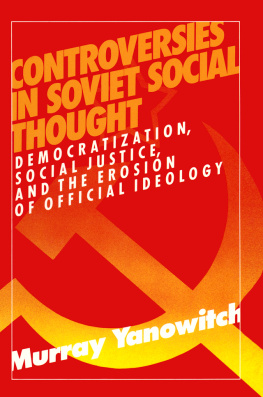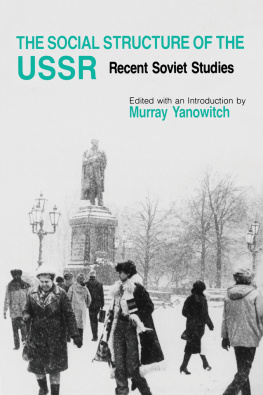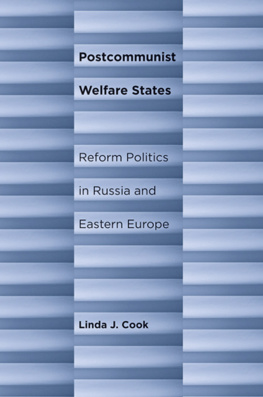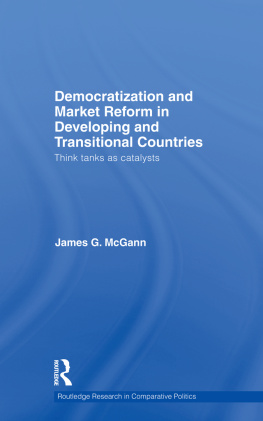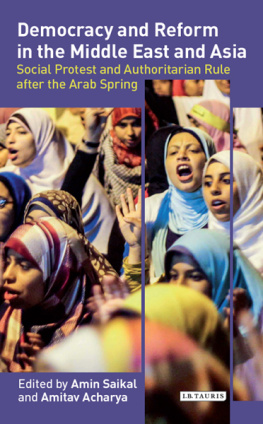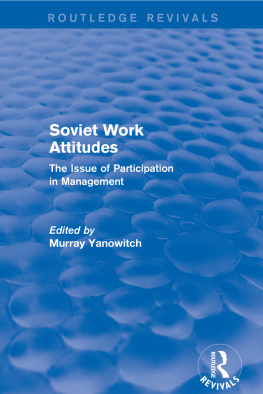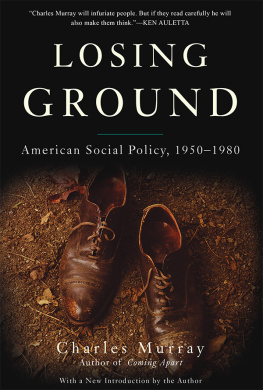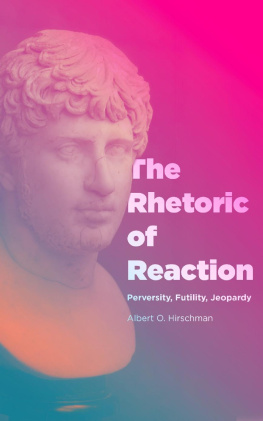CONTROVERSIES IN SOVIET SOCIAL THOUGHT
Controversies in Soviet Social Thought
Democratization, Social Justice, and the Erosion of Official Ideology
Murray Yanowitch
First published 1991 by M.E. Sharpe
Published 2015 by Routledge
2 Park Square, Milton Park, Abingdon, Oxon OX14 4RN
711 Third Avenue, New York, NY 10017, USA
Routledge is an imprint of the Taylor & Francis Group, an informa business
Copyright 1991 Taylor & Francis. All rights reserved.
No part of this book may be reprinted or reproduced or utilised in any form or by any electronic, mechanical, or other means, now known or hereafter invented, including photocopying and recording, or in any information storage or retrieval system, without permission in writing from the publishers.
Notices
No responsibility is assumed by the publisher for any injury and/or damage to persons or property as a matter of products liability, negligence or otherwise, or from any use of operation of any methods, products, instructions or ideas contained in the material herein.
Practitioners and researchers must always rely on their own experience and knowledge in evaluating and using any information, methods, compounds, or experiments described herein. In using such information or methods they should be mindful of their own safety and the safety of others, including parties for whom they have a professional responsibility.
Product or corporate names may be trademarks or registered trademarks, and are used only for identification and explanation without intent to infringe.
Library of Congress Cataloging-in-Publication Data
Yanowitch, Murray
Controversies in Soviet social thought:
democratization, social justice, and the erosion of official ideology
/ by Murray Yanowitch.
p. cm.
Includes bibliographical references and index.
ISBN 0-87332-558-3. ISBN 0-87332-881-7 (pbk.)
1. Soviet UnionSocial policy.
2. Soviet UnionPolitics and government1985 .
3. Perestroika.
4. Soviet UnionSocial conditions1970 .
I. Title.
HN527.Y36 1991
361.6'1'0947dc2091-14600
CIP
ISBN 13: 9780873328814 (pbk)
ISBN 13: 9780873325585 (hbk)
Contents
The chapters that follow document the substantial expansion of intellectual freedom that characterized the first five years of Mikhail Gorbachev's political leadership in the Soviet Union. In these essays we examine the discussions and controversies that emerged during this period on a variety of issues associated with the process of democratization (first in the workplace, and then in the political sphere), the theme of distributive justice, and the erosion of Marxist-Leninist ideology.
Our review of these discussions makes it clear that the diversity and richness of Soviet views on these matters cannot be readily encapsulated within the familiar but simplistic distinction between "democrats" and "hard-liners." Moreover, it is not only the diversity of views that is of interest here but also the "escalating" quality of some of the discussionsthe readiness to move beyond what previously might have appeared to be a relatively bold position, so that ultimately the most "sacred" truths become open to question.
Given the rapidity of change in the Soviet Union, it is almost obligatory to acknowledge that some of the discussions reviewed here have been superseded or overtaken by events. But their significance is surely not diminished by this fact, which itself illustrates what might be called the "expansionary logic" of the reform discussion. For example, in for example, that Soviet discussions of workplace democratization provided a forum for the propagation of democratic values, and that multicandidate elections (although by no means common practice) were explicitly defended and popularized in the context of the enterprise before they became "normal" procedure in the selection of deputies to the new parliament and local soviets in 198990.
How much scope can there be for intellectual freedomfreedom of expressionin a society that has barely begun the transition to a market economy and in which productive resources remain overwhelmingly under state ownership, at least in a legal or formal sense? We do not pose this question in order to suggest that the essays that follow can provide anything approximating a definitive answer to it, but they certainly have some bearing on any serious attempt to confront this question. Our point can be made quite simply. appeared mainly in 198789. By comparison with anything that appeared earlier in the decade (or in the preceding sixty years), the discussions and controversies reviewed in these chapters marked the emergence of a significant degree of intellectual freedom in the Soviet Union. But it would be difficult, if not impossible, to demonstrate that the expanding limits of freedom of expression in 198789 were preceded or accompanied by significant movement toward a "free market"as the term is normally understoodor toward the privatization of productive property. Important changes in this direction followed rather than preceded the freeing of intellectual life. Thus our provisional, if not very illuminating, response to the question posed at the beginning of this paragraph is: "considerable," judging by the brief Soviet experience of the late 1980s.
Readers will undoubtedly decide for themselves whether the evidence of intellectual ferment presented in ) provide additional evidence of the expanding boundaries of intellectual freedom in the Soviet Union during this period. Perhaps of greatest significance in these discussions are the occasional signs of the gradual development of the rare habit of civilized controversy on current political and social issues. This process has a long way to go, and one can only hope that it will not be reversed.
The author is most grateful to Patricia Kolb, executive editor at M.E. Sharpe, for frequent discussions on the substance of these essays and for seeing the project through to completion.
Controversies in Soviet Social Thought
Reformist Undercurrents in the Pre-Gorbachev Period
It is now clear that the immediate pre-Gorbachev years were more than merely years of "stagnation." This was also a period in which the unfolding of debate on economic reform helped set the stage for the reforms introduced by the Gorbachev political leadership in the late 1980s (Hewett, 1988, ch. 6; slund, 1989, ). But the reformist themes sounded in the first half of the decade were not confined to the strictly economic literature. They also appeared in the writings of some of the country's leading sociologists and psychologists. Indeed, our principal concern here is to demonstrate that the multidisciplinary reformist undercurrents of the years of "stagnation" provided a language, a set of ideas, and a conceptual apparatus on which a future political leadership would draw and also contributed to the intellectual discourse and controversies of the Gorbachev years examined in subsequent chapters. To put it in somewhat different but perhaps more direct terms, the break with the past represented by the Gorbachev years also rests on certain continuities.
Since the discussions among economists in the early 1980s (including the writings of the economic sociologist T.I. Zaslavskaia) have already been examined in the Western literature, we focus here mainly on some other significant, but less familiar, illustrations of reformist undercurrents in the immediate pre-Gorbachev period.

